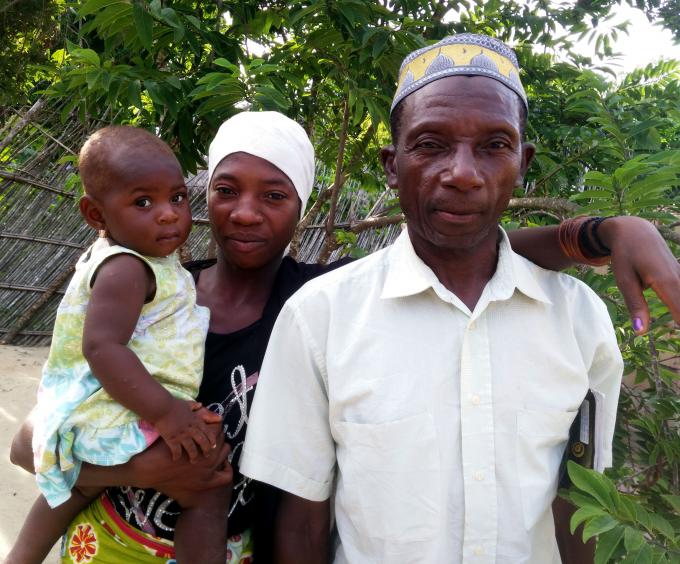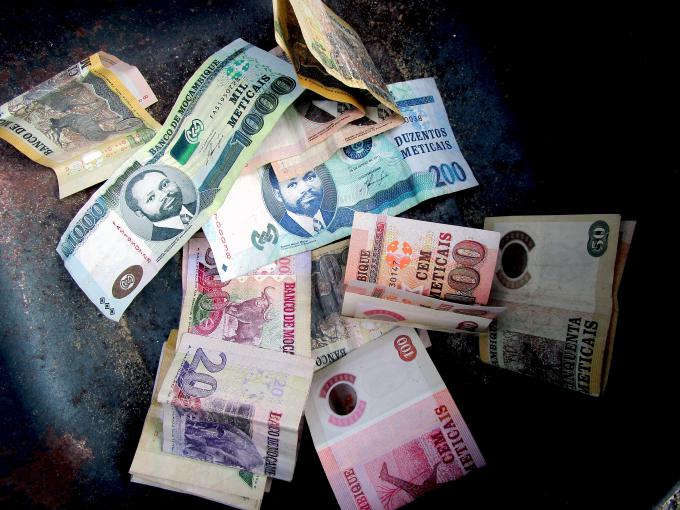Village Community Bank helps a pregnant woman in a health emergency
Munamine Coyariatyo, a Traditional Birth Attendant (TBA) and member of the Ratane Community Health Committee (CHC), walked under the sun, navigating the road’s mix of mud and dust. She was on her way to visit 32-year-old Sónia Remane, a mother of three, who at nine months pregnant, was due to deliver her fourth child soon.

Munamine received a friendly welcome upon arrival at Sonia’s home. She asked about Sónia’s health, but soon realized she was not feeling well. Unfamiliar with a birth plan, Sónia had not attended the recommended antenatal care visits and had delayed receiving care at a health facility (HF), which posed a risk to both her and her baby’s health. Sónia was unemployed, her husband was a fisherman, and they lacked the necessary money to pay for transport to the nearest HF for delivery. Sónia intended to give birth at home without a skilled birth attendant.
Munamine, who previously helped to join Ratane’s CHC with a functional Village Community Bank (VICOBA), immediately reported Sonia’s dilemma to her fellow CHC members. Although Sónia was not part of the CHC and had not taken out a loan, the members agreed to assist by giving 500 MZN, or about 8 USD, to her out of their social fund to pay for transport costs. The funds were used to purchase fuel for a private motorcycle to take Sónia to the HF located about eight kilometres from her home. The following day, Sónia, Munamine, and the motorcycle driver took the trip.
“We couldn’t leave the pregnant woman when she needed us. She was lucky, but most of the times many women don’t have the same luck. With social funds we can help others from our community in case of an emergency,” said Munamine.
The USAID-funded Maternal and Child Survivor Program (MCSP) adapted the VICOBA approach to the health context in Mozambique in 2017to strengthen the functionality of CHCs. MCSP continues to assist health authorities in the creation and revitalization of several CHCs like the one in Ratane. Through the support of community actors, MCSP aims to involve the community in actions to improve their own health and development. Ratane’s 20 CHC members were trained by MCSP on various packages to strengthen their skills and promote good practices like maintaining a functional VICOBA. Come They were motivated to start up a social fund as well as a savings and loan program, and began saving small amounts of money by making weekly contributions to a community box.
The VICOBA methodology has two important components. The savings and loans program enables eligible members to obtain a loan for up to three times the total amount of his or her savings. He or she pays back the loan with an interest rate of 5%-10%, and at the end of the cycle, the total amount is returned to the members along with proportional dividends earned from the loan interest. On other hand, there are social funds, which allocate fixed amounts (agreed upon by VICOBA members) as contributions to the community to focus on social issues. CHCs have autonomy to determine how to use the fund, though MCSP encourages its use for maternal, new born, and child health-related emergencies and support for vulnerable populations with health needs and other social issues.

To date, Ratane’s CHC has been able to save 70,000 MZN, approximately $1,150 USD, in its social fund. 223 other MCSP-supported CHCs linked to VICOBAs have been able to save 1,505,661 MZN, or about 138,650 USD. These funds have been used to improve access to emergency transport for children and pregnant women to HFs. A total of 126 CHCs (71 in Nampula and 55 in Sofala) have implemented this approach and are using the resources to contribute to the purchase of fuel for motorcycle ambulances or other forms of emergency transportation. As a result, a total of 6,297 community members (6,187 in Nampula and 110 in Sofala) were transferred to a HF for medical emergencies in 2017, including 880 pregnant women and 933 children under five years of age.
Ratane CHC’s social fund continues to be used for emergencies. Sónia, who avoided an almost one-hour walk or several-hour wait at the bus station for transport, gave birth safely to a healthy baby boy only hours after arriving at the HF. As a result, she has even decided to join the Ratane CHC’s VICOBA.
“I was risking losing my baby. I have been learning a lot about health since I became a member of the CHC. I particularly liked the topics like birth planning,” concluded Sónia.
Not only is the Ratane CHC’s VICOBA assisting those in the community who need support, it is also encouraging those it has helped to join and expand the investment in its community’s health.
 Mozambique
Mozambique